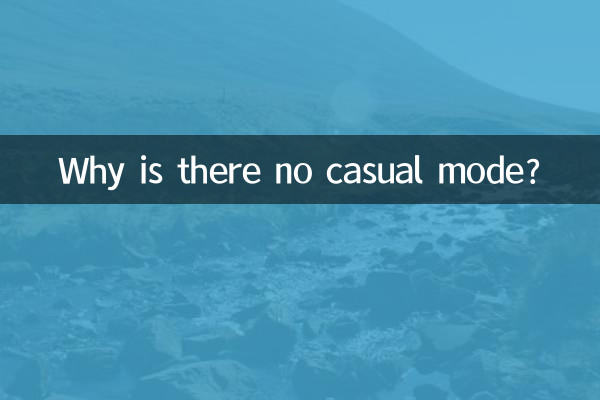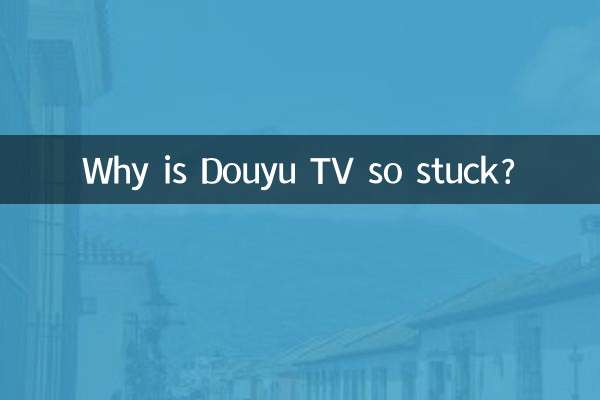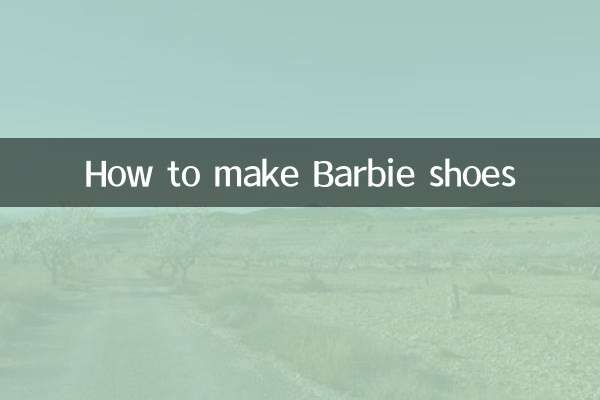Why is there no casual mode? ——Look at the time dilemma of modern people from the hot spots across the Internet
In the past 10 days, keywords such as "time management", "996 work system" and "mental consumption" have appeared frequently among the hot topics on the Internet. People complain about being "too busy to live", but they can't really switch to "leisure mode". This article combines hot data and phenomena to analyze the underlying reasons behind this contradiction.
1. Data inventory of hot topics across the entire network (last 10 days)

| Ranking | Topic Category | Hot search index | Typical events |
|---|---|---|---|
| 1 | workplace stress | 980 million | A major manufacturer's cancellation of its weekly sales caused controversy |
| 2 | health anxiety | 720 million | "Crispy young man" physical examination report floods the screen |
| 3 | Number addiction | 650 million | The average daily usage of short video users exceeds 3 hours |
| 4 | Leisure style | 510 million | Citywalk becomes a new internet celebrity event |
2. Three major reasons for the lack of leisure mode
1. Structural time squeeze
Data shows that 78% of office workers commute for more than one hour, and with an average working time of 9.2 hours, the real disposable time is less than 3 hours. When "working-sleeping-checking mobile phones" becomes the standard process, leisure becomes a luxury.
2. Pseudo-leisure trap
The fragmented time that should be used for relaxation is occupied by short videos and mobile games accurately fed by algorithms. Research shows that 61% of people feel more tired after using their mobile phones. This kind of "passive entertainment" cannot trigger a real relaxation mechanism.
3. Value identity conflict
The collective anxiety reflected in Internet buzzwords such as "lay down" and "disposed" is actually society's excessive respect for "high performance". When taking a break requires a reason and leisure creates a sense of guilt, the system automatically blocks the leisure mode.
3. Comparative analysis of typical phenomena
| Phenomenon | Data performance | Contradiction |
|---|---|---|
| Staying up late with revenge on weekends | Active users increased by 40% in the early morning | Use overdraft health in exchange for a sense of freedom |
| Special Forces Tour | An average of 50,000 check-in notes per day | Turn leisure into a KPI competition |
| electronic impotence | 83% of players’ game libraries are idle | Not even interested in entertainment |
4. Rebuilding possible paths for leisure
1. Time granularity management
Taking 15 minutes as the minimum leisure unit, the study found that three 15-minute scattered breaks are 27% more efficient than continuous 45-minute breaks.
2. Establish a sense of ritual switching
Establishing the psychological boundary of "work-leisure" through fixed actions (such as making tea and changing home clothes), the experimental group's leisure quality increased by 63% after doing so.
3. Develop deep interests
Compared with fragmented entertainment, people who invest more than 2 hours a week in a certain hobby (such as musical instruments, crafts) have significantly lower stress hormone levels by 41%.
When the social clock is getting faster and faster, perhaps the real leisure revolution lies not in gaining more time, but in redefining what a "meaningful life" is. The complaints that appear repeatedly in trending searches are precisely the most honest signals sent by the body: we need a cultural reconstruction about rest.

check the details

check the details